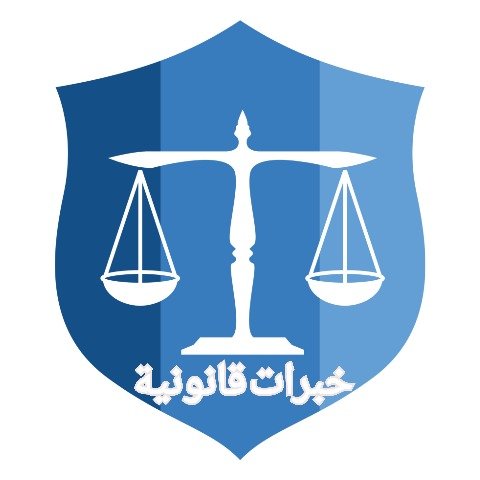Best Civil & Human Rights Lawyers in Iraq
Share your needs with us, get contacted by law firms.
Free. Takes 2 min.
Or refine your search by selecting a city:
List of the best lawyers in Iraq
About Civil & Human Rights Law in Iraq
Civil and Human Rights Law in Iraq encompasses a range of legal protections aimed at safeguarding individual freedoms and ensuring equality and justice for all citizens. The Iraqi Constitution, approved in 2005, enshrines a comprehensive array of civil liberties and human rights, including freedom of speech, religion, and assembly. Iraq is also a signatory to several international treaties and conventions on human rights, which influence its national policies. However, the enforcement and implementation of these rights can be inconsistent due to political instability, security issues, and societal challenges.
Why You May Need a Lawyer
Individuals may require legal assistance in the field of Civil & Human Rights for various reasons. Common situations include instances of discrimination, violations of freedom of speech or religion, unlawful detention, or issues involving personal security. Many individuals may also seek legal advice when facing barriers to accessing public services, education, or healthcare due to systemic inequalities. A lawyer specialized in Civil & Human Rights can provide guidance, represent individuals in court, and help in navigating the complexities of Iraq's legal system to ensure the protection of their fundamental rights.
Local Laws Overview
Key aspects of Iraq's local laws relevant to Civil & Human Rights include:
- Iraqi Constitution: It promises equality before the law, freedom from torture, and rights to privacy, freedom of belief, and assembly.
- Anti-Discrimination Laws: These laws seek to prevent discrimination based on gender, ethnicity, religion, or social status.
- Human Rights Commission Law: Establishes mechanisms for monitoring human rights violations and providing redress.
- Laws on Detention and Arrest: Laws regulate the conditions under which individuals can be detained or arrested, emphasizing the need for due process and protection against unlawful detention.
Frequently Asked Questions
What are my rights under the Iraqi Constitution?
The Iraqi Constitution grants individuals various rights, including equality before the law, freedom from discrimination, and freedom of expression, among others.
How can I report a human rights violation in Iraq?
Reports of human rights violations can be made to the Iraqi Human Rights Commission or other relevant governmental and non-governmental organizations.
What legal protections exist against discrimination?
Iraqi law prohibits discrimination on the basis of gender, ethnicity, religion, and other status, though enforcement can be challenging.
Can I access international legal resources for human rights issues?
Yes, Iraq is a signatory to various international human rights agreements which can be invoked in domestic cases.
How can a lawyer help with illegal detention cases?
A lawyer can assist by reviewing the legality of detentions, representing individuals in court, and seeking remedies or compensation for unlawful detentions.
Are there protections for freedom of speech in Iraq?
While there are constitutional freedoms, expressions must not incite violence or societal discord, and there may be government restrictions.
What role do NGOs play in defending human rights in Iraq?
NGOs provide crucial support in advocacy, legal assistance, and raising awareness about human rights issues.
How does Iraq's legal system address gender-based violence?
There are laws aimed at protecting individuals from gender-based violence, but cultural and systemic factors often affect their enforcement.
Is there legal assistance available for refugees and displaced persons?
Several international and local organizations offer legal support and assistance to refugees and internally displaced persons in Iraq.
What measures exist for protecting religious freedom?
The Constitution guarantees religious freedom, but societal and political challenges sometimes hinder its full realization.
Additional Resources
Individuals seeking assistance can reach out to the following organizations:
- Iraqi High Commission for Human Rights: Provides oversight and addresses complaints related to human rights violations.
- UNHCR Iraq: Offers support for refugees and displaced persons regarding their rights and legal protections.
- Local NGOs: Various local non-governmental organizations specialize in different areas of human rights and can offer guidance and support.
Next Steps
If you require legal assistance in Civil & Human Rights, consider the following steps:
- Consult a Lawyer: Seek out a lawyer who specializes in Civil & Human Rights to discuss your situation and understand your legal options.
- Gather Documentation: Collect any relevant documentation or evidence related to your case to facilitate your lawyer's understanding of the issue.
- Reach Out to Relevant Organizations: Contact local or international organizations that might provide additional support or resources to strengthen your case.
- Stay Informed: Keep up to date with changes in laws and policies related to human rights in Iraq to ensure you are aware of your rights and legal protections.
Lawzana helps you find the best lawyers and law firms in Iraq through a curated and pre-screened list of qualified legal professionals. Our platform offers rankings and detailed profiles of attorneys and law firms, allowing you to compare based on practice areas, including Civil & Human Rights, experience, and client feedback.
Each profile includes a description of the firm's areas of practice, client reviews, team members and partners, year of establishment, spoken languages, office locations, contact information, social media presence, and any published articles or resources. Most firms on our platform speak English and are experienced in both local and international legal matters.
Get a quote from top-rated law firms in Iraq — quickly, securely, and without unnecessary hassle.
Disclaimer:
The information provided on this page is for general informational purposes only and does not constitute legal advice. While we strive to ensure the accuracy and relevance of the content, legal information may change over time, and interpretations of the law can vary. You should always consult with a qualified legal professional for advice specific to your situation.
We disclaim all liability for actions taken or not taken based on the content of this page. If you believe any information is incorrect or outdated, please contact us, and we will review and update it where appropriate.
Browse civil & human rights law firms by service in Iraq
Iraq Attorneys in related practice areas.
Browse civil & human rights law firms by city in Iraq
Refine your search by selecting a city.










